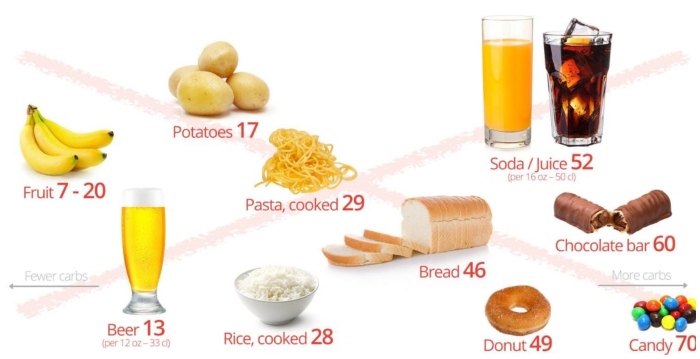Carbohydrates, often shrouded in a veil of controversy especially in the realm of weight management, are fundamental components of a nutritious diet. Contrary to the prevalent stigma that labels all carbs as detrimental, understanding the diverse types of carbohydrates and their roles can illuminate their necessity for optimal health. This exploration aims to demystify carbohydrates, guiding towards informed choices that harmonize with a healthful lifestyle.
The Essence of Carbohydrates
Carbohydrates stand as one of the primary macronutrients, pervasive across a myriad of foods and beverages. Originating predominantly from plant sources such as grains, fruits, and vegetables, carbohydrates are also introduced into processed foods through added sugars and starches. This vast presence underscores the importance of discerning between naturally occurring carbohydrates and those added during processing.
Types of Carbohydrates: A Closer Look
Carbohydrates manifest in three principal forms:
- Sugar: The most elementary form of carbs, found naturally in fruits, vegetables, and dairy products. Added sugars extend to foods like cookies and sugary beverages.
- Starch: A complex carbohydrate, consisting of multiple sugar units. It’s naturally present in vegetables, grains, and beans.
- Fiber: Another complex carbohydrate, pivotal for digestive health, found in whole grains, fruits, and vegetables.
Beyond the Basics: Net Carbs and Glycemic Index
The terms “net carbs” and “glycemic index” often enter discussions around carbohydrates, yet lack standard definitions. “Net carbs” generally refers to carbohydrates excluding fiber or both fiber and sugar alcohols. The glycemic index categorizes foods based on their potential to elevate blood glucose levels, influencing dietary choices, especially in weight-loss regimes.
Carbohydrate Requirements for Optimal Health
The Dietary Guidelines for Americans suggest that carbohydrates should constitute 45% to 65% of total daily calorie intake. This recommendation translates to 225-325 grams of carbohydrates daily within a 2,000-calorie diet. The Nutrition Facts label on packaged foods can facilitate understanding the nutritional content, particularly the carbohydrate composition of foods.
The Vital Functions of Carbohydrates
Carbohydrates are indispensable for numerous reasons:
- Energy Provision: They are the primary energy source for bodily functions and physical activities.
- Disease Prevention: Whole grains and dietary fiber from whole foods may reduce the risk of chronic diseases like heart disease, diabetes, and certain cancers.
- Weight Management: Consuming fiber-rich fruits, vegetables, and whole grains can aid in weight control by promoting satiety with fewer calories.

Selecting Healthy Carbohydrates
Incorporating healthy carbs into one’s diet involves strategic choices:
- Prioritize Fiber-Rich Fruits and Vegetables: Opt for whole, fresh, or minimally processed fruits and vegetables without added sugars.
- Choose Whole Grains Over Refined: Whole grains retain more nutrients and fiber compared to their refined counterparts.
- Opt for Low-Fat Dairy Products: These provide essential nutrients without the added calories from fat.
- Incorporate Beans, Peas, and Lentils: As nutritious alternatives to meat, they offer protein, fiber, and other vital nutrients with lower fat content.
- Limit Added Sugars: Reducing the intake of foods high in added sugars, such as desserts and sugary drinks, can prevent excess calorie consumption.
Embracing Carbohydrates in a Balanced Diet
The key to a healthy diet is not the exclusion of carbohydrates but the selection of nutrient-dense, whole-food sources. By focusing on natural sources of carbs and integrating them mindfully into meals, one can enjoy the full spectrum of benefits they offer. This approach not only supports physical health but also aligns with a balanced, enjoyable eating pattern.

Conclusion
Carbohydrates, often misunderstood and wrongly vilified, are foundational to a nutritious and balanced diet. By choosing carbohydrates wisely—focusing on whole grains, fruits, vegetables, and legumes—while limiting added sugars and refined grains, one can harness the benefits of carbs for energy, disease prevention, and weight management. Understanding and applying these principles can transform carbohydrates from a dietary challenge into a cornerstone of healthful eating.